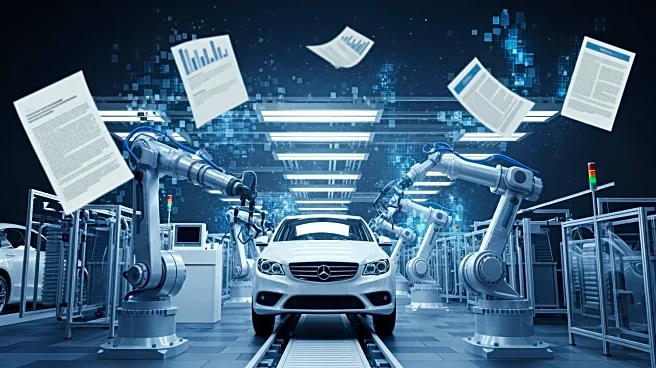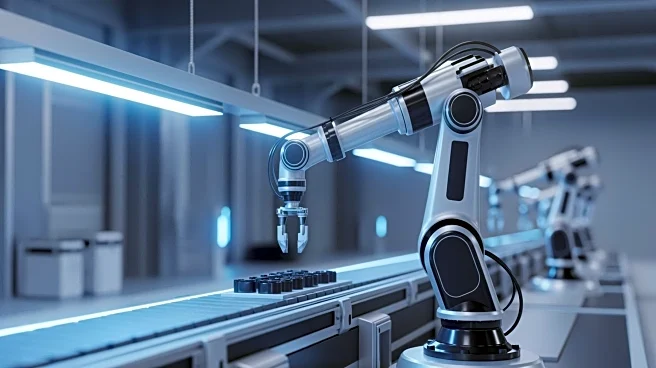What's Happening?
The Society of Motor Manufacturers and Traders (SMMT) has reported a 27.1% decline in UK car production for September. This drop is largely attributed to a cyber attack that halted production at Jaguar
Land Rover, although other manufacturers experienced growth. Notably, 47.8% of cars produced were battery electric, plug-in hybrid, or hybrid, with volumes increasing by 14.7% to 24,445 units. The decline in production has raised concerns ahead of the upcoming budget, with SMMT warning of potential damage to jobs and industry competitiveness if plans to end Employee Car Ownership Schemes (ECOS) proceed. The SMMT's analysis suggests that 60,000 automotive manufacturing workers could be affected, impacting their remuneration and personal transport options.
Why It's Important?
The decline in car production and the potential end of ECOS could have significant implications for the UK automotive industry. The reduction in production affects both domestic and export markets, with exports declining by 24.5%. The potential policy change could exacerbate existing challenges in the sector, including skills shortages and recruitment difficulties, particularly in regions with inadequate public transport. The SMMT's warning highlights the broader economic impact, including potential revenue losses for the exchequer and the risk to the government's industrial strategy aimed at restoring vehicle output to 1.3 million units annually.
What's Next?
The upcoming budget on November 26 will be a critical moment for the automotive industry, as stakeholders await the Chancellor's decision on ECOS. The SMMT is advocating for the reversal of plans to scrap ECOS, emphasizing the need to support the sector's growth and competitiveness. The industry is likely to continue lobbying for policies that align with the government's industrial strategy and address the challenges posed by the cyber attack and production decline.
Beyond the Headlines
The cyber attack on Jaguar Land Rover underscores the vulnerability of manufacturing operations to digital threats, highlighting the need for robust cybersecurity measures. Additionally, the shift towards electric and hybrid vehicles reflects broader trends in the automotive industry towards sustainability and innovation. The potential policy changes could also influence the industry's approach to employee benefits and transport solutions, impacting workforce dynamics and regional economic development.












